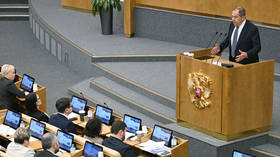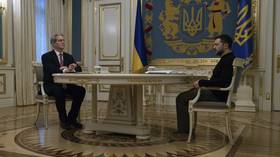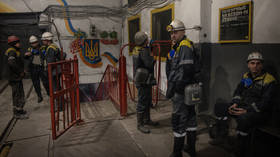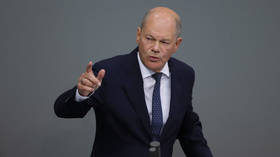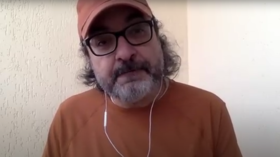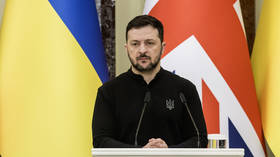‘Erdoganistan’: Persecuted journalists tell RT of horrors of Turkish crackdown on Kurds
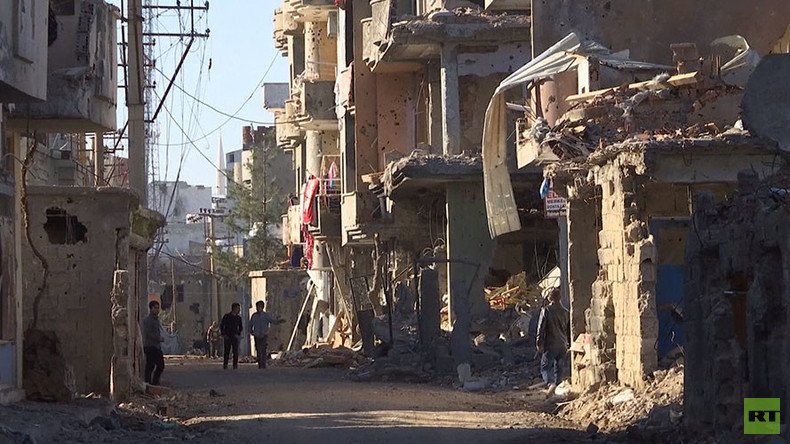
While very little is said in the Western media about Turkey’s crackdown on the Kurds in southeast Turkey, and journalists are virtually banned from the afflicted region, RT Documentary turned to locals for help in finding out what’s really going on there.
Journalists from RT Documentary channel (RTD) were introduced to Hilal, a reporter who lives in Turkey’s troubled city of Diyarbakir. With the Turkish army in the region fighting Kurdistan Worker’s Party (PKK) forces, whom they call “terrorists,” constant gun fights and explosions just a few blocks from her home have become a familiar sight for the journalist. The Kurds in the country’s southeast are seeking more autonomy from the Turkish government.
READ MORE: Turkish Army shells Kurdish-majority town at Syria border (VIDEO)
“For us it’s normal. When I go to another city, I feel very weird, when I don’t hear [any bombs going off]. Or, when I don’t see any vehicles on the street, like our army everywhere, I feel weird. I think I got used to live with this,” Hilal told RTD’s Marina Kosareva.
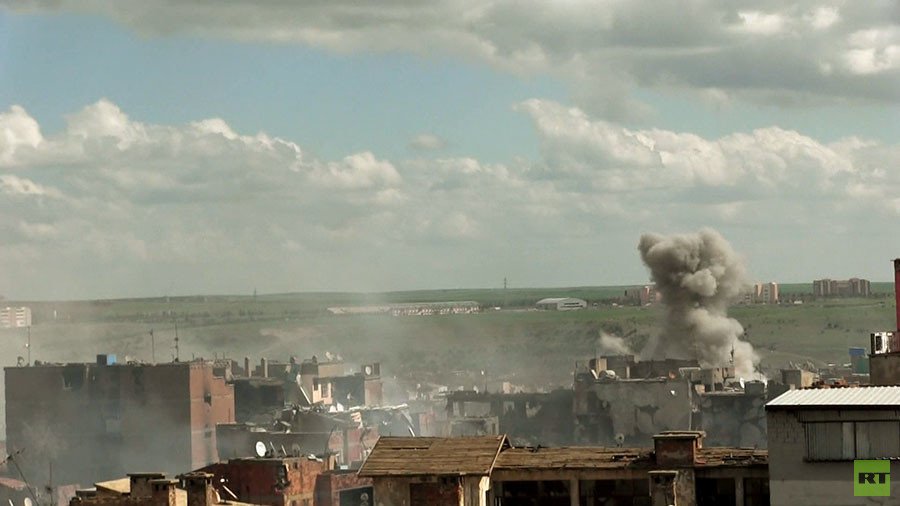
Turkish President Recep Tayyip Erdogan’s government denies international journalists and independent Turkish reporters access to the area under various pretexts, but Hilal has made it her mission to show the world what’s happening in Turkey’s southeast. “When I hear the sounds of bombs from my balcony, I can’t just stay here and do nothing,” she said.
It is extremely difficult for foreign journalists to work anywhere near the Turkish-Syrian border. Many reporters have been detained and deported after trying to film news stories in the area. To overcome the news blackout, RTD asked Hilal to go to the border with her own cameraman to report on the situation in the frontier regions that Syrian refugees fleeing from Islamic State (IS, formerly ISIS/ISIL) try to reach. During her investigation, the Turkish reporter learned of an illegal route by which people can be led across the border – for a fee. One teenager told Hilal that he had to pay a lot to a man at the border to have his mother transported out of Syria.
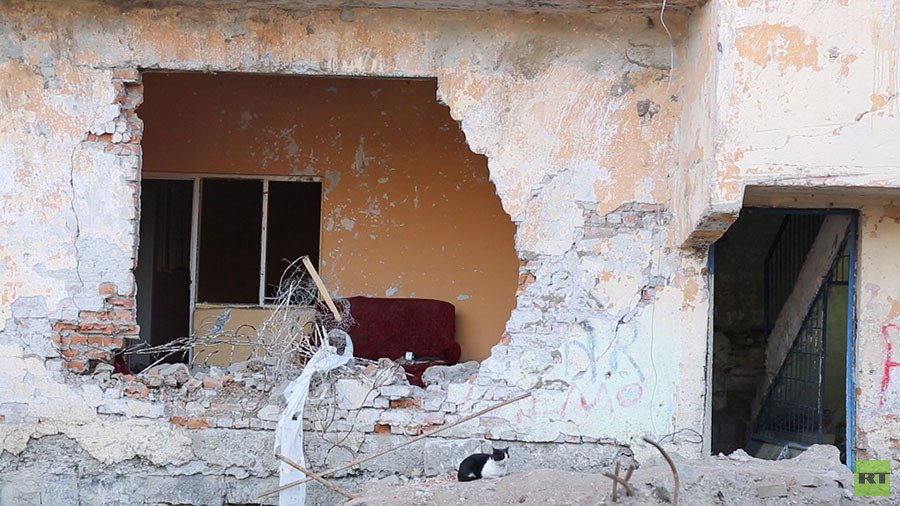
RT correspondent William Whiteman has also struggled to work out exactly what is happening in southeastern Turkey. Risking his life, he illegally traveled to the town of Cizre – the scene of one of the bloodiest episodes in the Turkish government’s campaign against the Kurds. The town near the Turkish-Syrian border was besieged for several months with tanks and heavy artillery.
READ MORE: The road to Cizre: Entering the site of a massacre (OP-ED by RT correspondent)
“The thing that was most striking about the place was just the silence. When you’re going around, it’s just completely silent. You can only hear people sifting through the ruins of their former homes,” he recalled. One of his most horrifying impressions was the smell “of rotting bodies.”
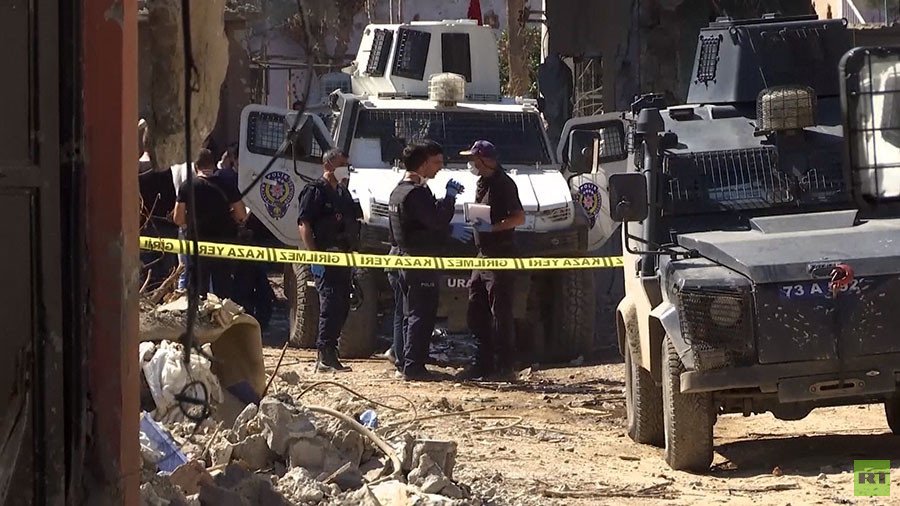
“The smell in the basements where people supposedly have been burnt to death is really overpowering... [Locals] just said that Erdogan had killed civilians there,” the reporter said, adding: “An old woman showed me around her neighbors’ houses and she specifically said that Erdogan’s soldiers who are operating [there] looked and behaved like ISIS.”
READ MORE: ‘Turkey in organic relationship with ISIS’ – pro-Kurdish HDP party
The government will continue its fight against the Kurds, as to recognize that they should have the right to some measure of autonomy “would blow up the whole [Erdogan’s] system,” chairman of Turkey’s People’s Democratic Party (HDP), Selahattin Demirtas, told RTD. “His government was initially based on the ‘one nation’ principle... Erdogan was elected on ideology based on chauvinism and nationalism,” he said.
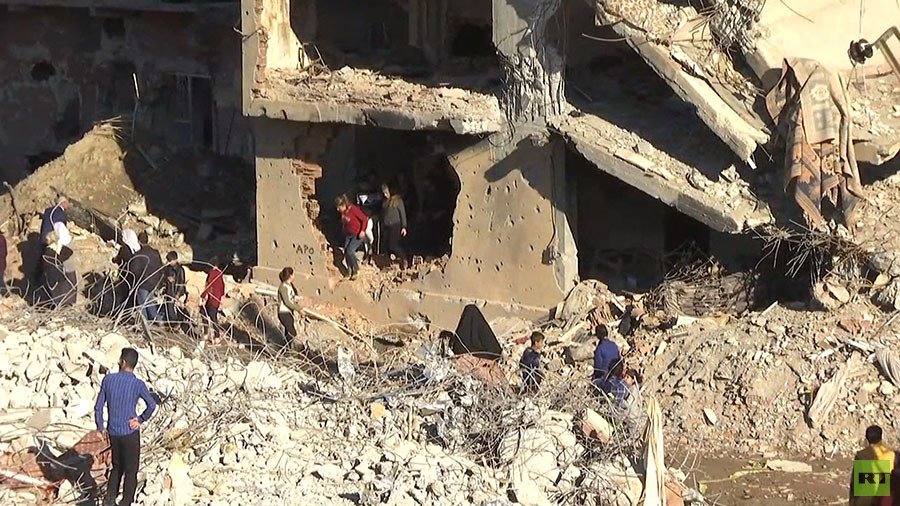
Another local journalist, Ferat Mehmetoglu, shared information on what he claimed was Ankara’s support for terrorists in Syria. He said he “saw with [his] own eyes” how the Turkish military was supplying them with provisions. “Turkish armored vehicles came to the border; we even filmed them giving some boxes to ISIS militants. We can’t know if it was weapons or food supplies. But I think everyone understands that such boxes can be used not only for transporting food. Most probably, the boxes contained ammunition,” he told RTD.
READ MORE: ISIS covers fighters’ hefty bills in Turkish hospitals, leaked phone taps reveal
Journalists in Turkey face criminal prosecution for reporting on such activities. RTD met a freelance writer named Kenam Kirkaya who was only recently released from a Turkish prison where he spent two and a half years. Like many of his fellow journalists, he was accused of terrorism. “In the Turkish prison, we were treated the same way as thieves, rapists, and murderers,” he said.
Hilal from Diyarbakir said she now fears the same, or even worse.
Watch the documentary ‘Erdoganistan’ on RT and RTD, premiering on June 3.



